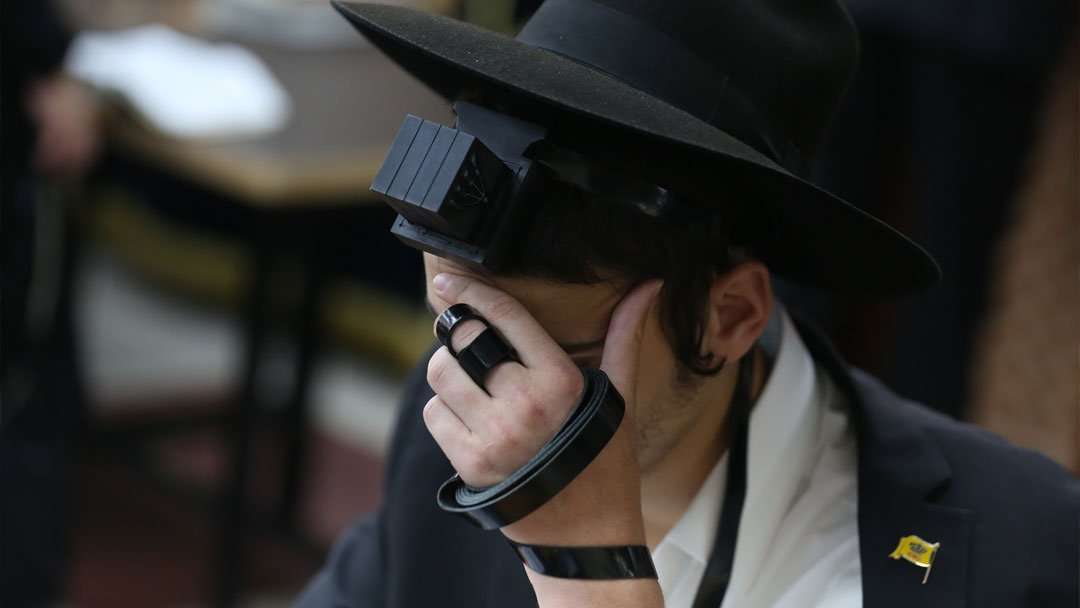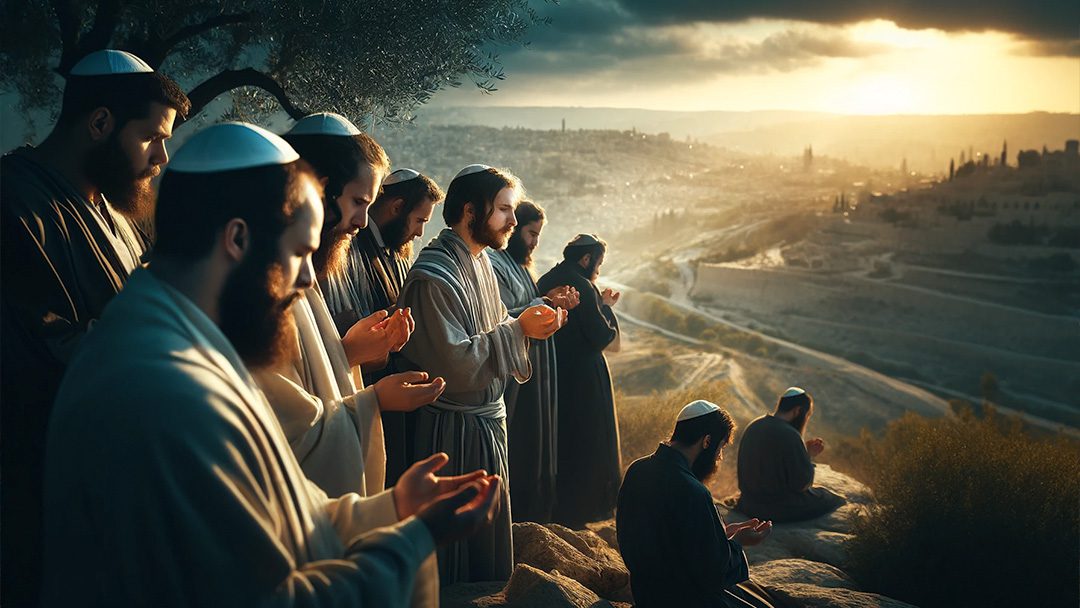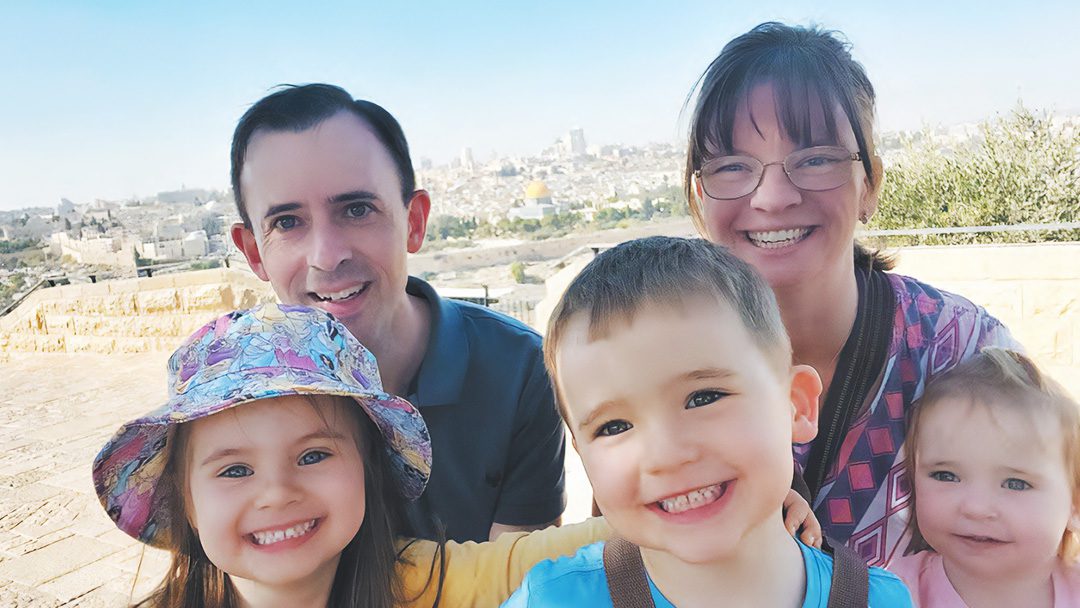Deuteronomy 6:4 “Hear, O Israel: The Lord is our God; the Lord is one. And you shall love the Lord, your God, with all your heart and with all your soul, and with all your means. And these words, which I command you this day, shall be upon your heart. And you shall teach them (diligently) to your sons and speak of them when you sit in your house, and when you walk on the way, and when you lie down and when you rise up. You shall bind them as a sign on your hand, and they shall be as frontlets between your eyes. And you shall inscribe them upon the doorposts of your house and upon your gates.”
This very special set of verses is called simply ‘The Shema’ (ַׁשמַׁע). The term ‘Shema’ comes from the first word of the first verse.
Deuteronomy 6:4 Hear, O Israel: The Lord our God; the Lord is one.
In Hebrew it is: ‘Shema Yisra’el, (Adonai) Eloheinu, (Adonai) echad.’
For the Jewish people, this is the first Bible verse a child learns to say and are the last words a person recites before dying.
In the days of the Tabernacle/Temple, the morning and evening burnt offerings were the focal point for morning and evening prayers. Some 1950 years after the destruction of the Temple it is a practice which still continues.
And it is the ‘Shema’ which is the basis of the morning and evening prayers for every Jewish person.
In 1945, Rabbi Eliezer Silver headed up the search for thousands of displaced Jewish children across Europe hidden from the the Nazis on farms, convents, and monasteries.
A monastery in southern France had taken in Jewish children but the priest in charge thought that all of their children were Christians—their family names were all German. Rabbi Silver could produce no records but some of the children may be Jewish.
With permission to visit the wards, he began singing “Shema Israel, Adonai Elohenu, Adonai Echad.” (Hear, O Israel, the Lord our God, the Lord is one.)
Some of the children immediately raised their hand to cover their eyes and recited the Shema with him and he immediately knew who the Jewish children were.
Interestingly, Jesus when asked what the greatest commandment was answered, “The first of all the commandments is: Hear, O Israel, the LORD our God, the LORD is one. And you shall love the LORD your God with all your heart, with all your soul, with all your mind, and with all your strength.’ This is the first commandment.’
Some of us may have missed that Jesus is quoting the Shema.
‘Shema’ is the first word of this series of scriptures and it simply means ‘hear’ or ‘listen’. ‘Shema Yisra’el’ means ‘Hear, O Israel’.
The recitation of the Shema is considered to be the primary obligation of the daily prayer service. But if you look very closely you will notice that the Shema is not actually a prayer at all but a series of commands from the Lord (including the greatest command of all—to ‘love the Lord your God with all your heart, with all your soul and with all your strength’).
Therefore reciting the Shema every morning and evening has become one of the most effective memory verses of all time of God’s heart for us to keep the command to never lose sight of Him as the first priority in our lives and to obey all of His commands.
Traditionally the Shema consists of three separate passages of Scripture which are all recited twice daily.
These three passages are:
- Deuteronomy 6:4-9 – Hear, O Israel … Shema Yisra’el
- Deuteronomy 11:13-21 – And it shall come to pass … Ve Hayah
- Numbers 15:37-41 – And the LORD said …VaYomer HaShem
- But my focus is on the first of these passages – Hear, O Israel … Shema Yisra’el.
Hear, O Israel
Vs 4 Hear, O Israel: The Lord is our God; the Lord is one.
The word Shema, (ָׁעמשַ) is the essential form for the word ‘listen’. ‘Shema,
O Israel’.
The rabbis referred to the daily recitation of the Shema as ‘taking on the yoke of the kingdom of heaven’. (Talmud Berachot 13a-14b)
The imperative charge ‘Hear, O Israel’ can be understood as saying, ‘Obey, O Israel!’ When God tells us to ‘hear’ something, He is calling for our obedience.
Here Moses tells Israel, ‘Listen to this! Get ready to obey’.
When you have tried to get your child’s attention when you have seen them headed for trouble, have you ever said ‘Listen to me’. It means ‘obey me’.
The Shema is really a command to obey God—as He is the One true God.
Walking WITH God and experiencing Him therefore is the aim, NOT just knowing ABOUT God. By learning and obeying God’s commands we get to know Him and what He is like.
In other words, learning about God, leads me to obey Him and determines how I behave otherwise I DON’T have genuine faith in God.
There is a possibility that you could be one of the world’s most knowledgeable Bible scholars and yet still live in disobedience to God and His commands.
Even some of the world’s most brilliant Bible scholars of the first century said to Pilate ‘crucify Him’ and so condemned Messiah Jesus to die on the cross.
The lesson from this first verse of the Shema is that we must NOT allow our esteemed knowledge about God and the Torah stop us seeing its beautiful outworking in our lives.
The Shema reminds us NOT to just gain knowledge, but to obey God so that we come to know Him and walk with Him.
(Did you know that the expression ‘Walking with God’ simply means obeying God’s commands’)?
Hearing Is Followed By Seeing
The word Shema, ַָׁשמַׁע with the letters Shin ׁש — Mem מ — Ayin ע — which means ‘to hear’ starts with the letter ‘shin’ which is the letter used for God’s Name (Shaddai) and ends with the letter ‘ayin’ which means ‘eye’ or ‘see’ and by extension ‘to understand’ or ‘to know’.
The idea is that one first HEARS about God—ie His commandments and only then does he SEE God and KNOW God.
The apostle Paul teaches this principle:
Romans 10:17 Faith comes by hearing and hearing by the Word of God
Our faith in God, or in other words ‘seeing’ God or ‘knowing’ God, comes first from hearing His commands.
Hearing His commands (which also by extension means obeying His commands) causes us to know Him and what He is like; that He is totally devoted to His covenants and is a God Who keeps His promises.
This consequently brings faith into our hearts that He will be the same promise-keeping God to us.
Shema O Israel, the Lord our God, the Lord is one.












0 Comments